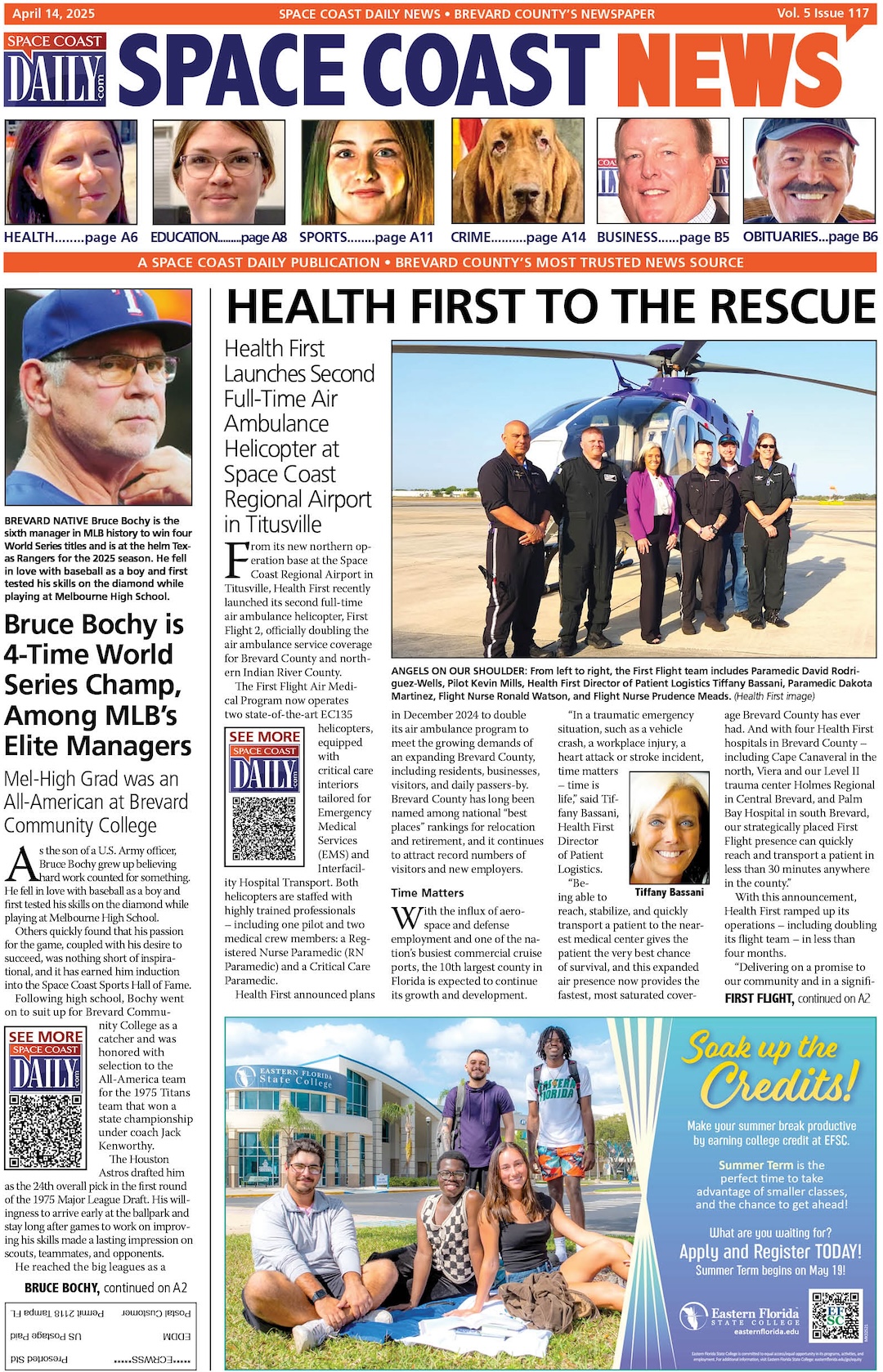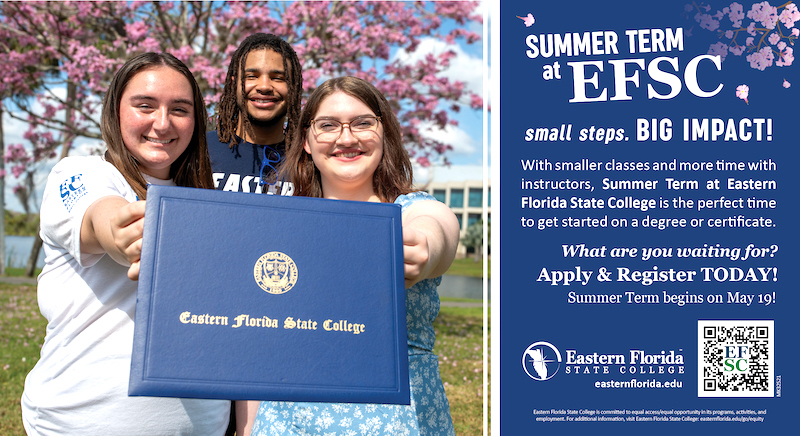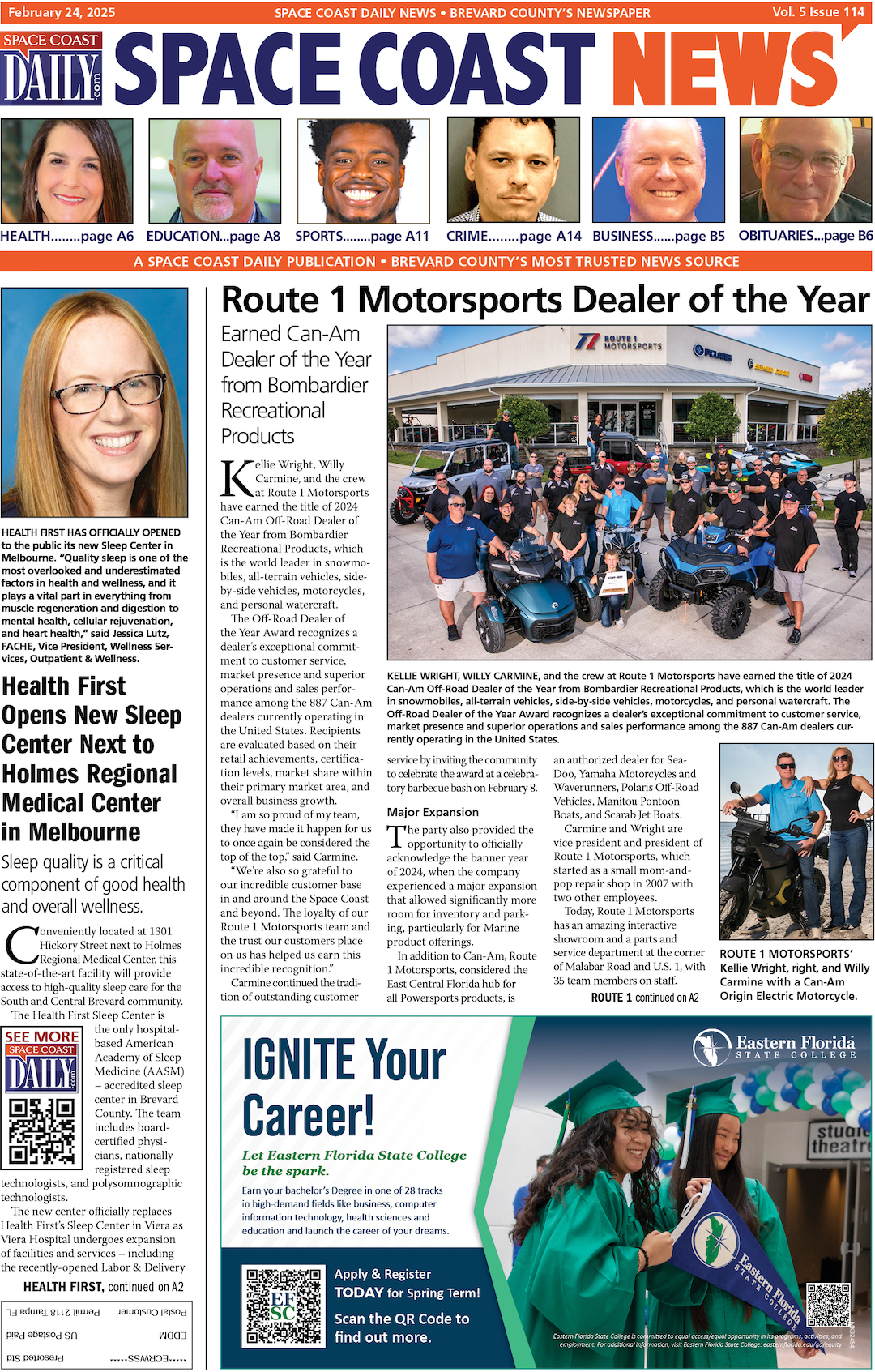The West Flagler and Associates (WFA) Sports Betting Case Explained
By Space Coast Daily // May 31, 2024

West Flagler and Associates (WFA) have taken their legal challenge against a 2021 sports betting compact to the U.S. Supreme Court (SCOTUS). SCOTUS must now decide whether or not to hear this challenge against the Seminole Tribe and Hard Rock Digital.
Why is a legal challenge against the Seminole Tribe being made?
The WFA does not agree with a compact that was made in 2021 regarding sports betting in the state of Florida. Neither do they agree with the Seminole Tribe’s monopoly of sports betting in the state.
The sports betting compact in question was made between the Seminole Tribe and the state of Florida. Gov. Ron DeSantis granted exclusive rights to the Seminole Tribe to provide sports betting, both online and in person. This means that no other Florida-based company or tribe can provide sports wagering and casino gambling.
However, this agreement did not prohibit the use of offshore betting sites in Florida. This means that Florida-based gamblers can access some of the best offshore poker sites to play classic casino games in addition to placing sports wagers. Filip Jovchevski has found a range of offshore sites that provide competitive odds and deliver secure transactions.
The WFA is a Florida-based gambling business associated primarily with track racing operations. The business believes the 2021 compact violates the Indian Gaming Regulatory Act (IGRA) as it permits sports betting outside tribal lands, which is why they’re taking it to SCOTUS.
Does the IGRA allow online sports betting?
The IGRA does not specifically permit online sports betting, nor does it ban it. This is an issue that has proven challenging for state governments across the US following the emergence of online betting sites.
The IGRA is a federal law that was passed in 1988 – long before online gambling became a thing. This law established the legal framework that Native American tribe-owned casinos must follow. This includes how gambling is conducted, requirements for commissions, and, most importantly in this case, where gambling can take place.
The IGRA states that gambling must take place on tribal lands. This makes sense when it comes to brick-and-mortar casinos, as, in order to abide by this rule, tribes can simply build their casinos on tribal land.
However, this rule becomes confusing in the context of online activities. If the gambler is not actually placing the bet at a physical casino on tribal land, does the act of gambling still abide by the IGRA? This is exactly the point that the WFA is raising.
What does Florida Law say?
In addition to the pact going against IGRA, the WFA also claims that the pact gives the Seminole Tribe an unfair monopoly over the state of Florida. They argue that the pact circumnavigates voter approval, which is a constitutional requirement under the 2018 Florida Law amendment.
This amendment stated that all casino expansions that take place outside of tribal land must first be approved by citizen initiative – which, in this case, hasn’t happened.
The government’s defence
Both the Department of the Interior (DoI) and the Department of Justice (DoJ) have argued against WFA’s claim that the pact violates the IGRA.
While they acknowledge that online casino activity does partially take place off-tribal land, the bets are still processed through the tribal casino’s server, which is based on tribal land.
Although a US district court was initially in favor of WFA’s argument, the case was later overturned by an appellate court. In response, the WFA requested to receive a full appellate court, but this was denied.
What happens now?
SCOTUS will either deny or approve the new petition submitted by the WFA. They could grant the writ of certiorari and hear the case. If this were to happen and SCOTUS rules in favor, there’s a chance that the 2021 pact could be rendered invalid. However, a final ruling won’t arrive until late 2025.
On the other hand, SCOTUS could deny the new petition outright, and no changes would be made to the pact’s validity.
Either way, the state and the Seminole tribe are set to make a lot of money from online gambling in 2024. Florida is expected to earn $120 million from online sports books alone this year.
If the pact remains valid, revenue sharing from tribal gaming is forecast to reach $4.4 billion by the end of this decade.
Potential impact
Should the pact remain valid, it has the potential to change the face of sports betting laws not just in Florida but throughout the rest of the gambling states in the US.
Other tribes could initiate similar pacts with their respective state governors in order to achieve a monopoly. If this were to happen, the pact between the Seminole tribe and the state of Florida would be remembered as a landmark in gambling legislation.
Currently, there are 525 tribe-run casinos across the US which create an economic impact of $96.96 billion, according to the American Gaming Association. This impact will undoubtedly grow should more tribes land similar pacts to that of the Seminole tribe.
Final thoughts
The ongoing legal dispute between the WFA and the Seminole tribe is an interesting one – it could either totally change the face of online gambling in Florida or make no impact at all. The WFA has highlighted how the 2021 pact goes against the IGRA and Florida Law – but is this enough to persuade SCOTUS to do anything about it?












